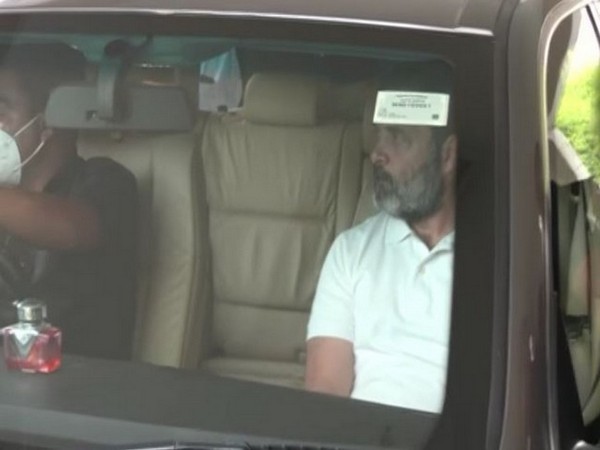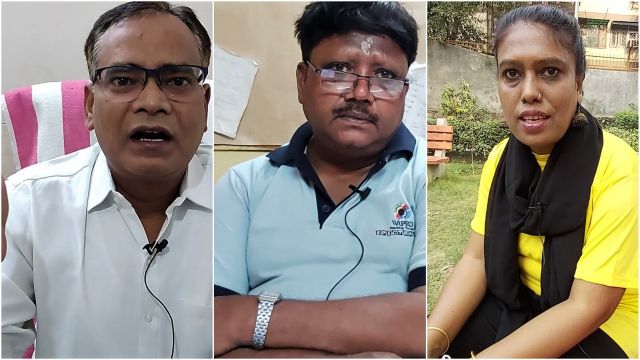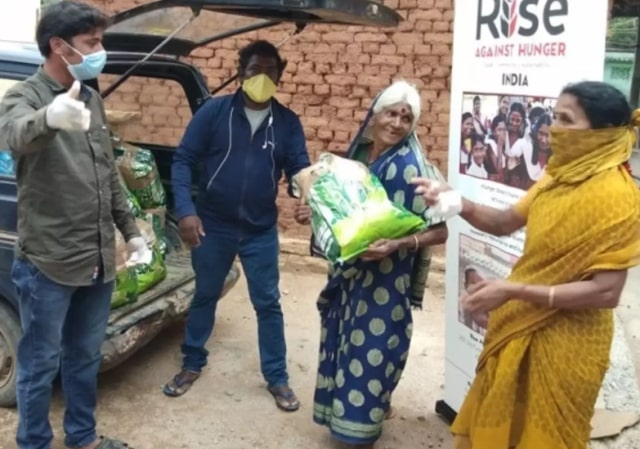Dr Bhawna Anjaly
Superheroes are a figment of imagination. They were invented to give us hope and help us sail through problems. However, in the real world, as we witnessed amid raging Covid-19 pandemic, super heroes do exist – people who tirelessly help others wade through difficult times. These heroes protect people from deadly viruses, ravenous floods, and unforgiving hunger apart from the mundane work of saving lives of many marginalized, forgotten souls. The Covid-19 outbreak saw the emergence of many such superheroes in the form of Civil Society Organisations (CSOs) along with the more recognized health and sanitation workers.
CSOs have shown why the society, in spite of the government and its
systems, needs them. The ongoing Covid-19 pandemic crisis is no exception. The
Internet is buzzing with stories of some of these warriors.
Now with the economy in doldrums, and sources of funding drying up, CSOs (our superheroes) are struggling to survive. CSOs that should be nurtured are instead staring at a bleak future, feeling vilified by the newly amended Foreign Contribution Regulation Act (FCRA).
The clause in the law that disallows re-granting of FCRA funds to
another FCRA-compliant organization would particularly be detrimental to the
survival of many grassroots NGOs, which depend on re-granting of funds for
their survival. Most of the small and mid-size organizations generally do not
have the capacity to raise foreign money on their own. Also, they do not have
the capacity to carry out big projects due to their limited resources and
constrained geographical outreach. They receive foreign funds through
collaborative projects with other larger organisations.
The re-granting of
funds helps in better management of resources, more accountability, curtailing
of misappropriation of funds and helps achieve greater impact on the ground.
The new law seeks to curtail the funds of many grant-making organisations along
with other FCRA-compliant grassroots organisations. These organisations have
been the real mover-and-shakers in terms of furthering India’s development
agenda at the local and hyperlocal levels. The new amendment will choke
the lifeline of these smaller NGOs, which have their feet and ear firmly on the
ground.
We saw this process
at work during the Covid-19 lockdown when many such smaller NGOs worked
selflessly and tirelessly to help the marginalised. According to a
survey done by the Charities Aid Foundation (CAF) India, with over 220 civil
society organizations, these bodies have been involved in the distribution of
ration kits (58%), hygiene kit (61%), awareness generation (47%) along with PPE
(Personal Protective Equipment) kits to the frontline health workers, sanitation
workers, and police personnel.
Some CSOs used the midday meal kitchens at government schools to
prepare and distribute food. With state government support, they could prepare
and distribute over 8.4 million meals (mostly migrant workers) till April 9.
They provided online money transfer to the beneficiaries in dire need of
support and working with the most vulnerable groups including migrant
population (48%), daily wage workers or homeless (18 percent) children and
elderly (15 percent).
Now as the country
gears up to recover from the socio-economic setbacks brought about by the
pandemic, NGOs will be instrumental in addressing challenges at local and
hyperlocal levels. The abovementioned clause will clip their wings and disallow
them to continue with their good work.
Additionally, the provision in the amended law of using less than 20%
of the project amount as administrative cost, may have huge repercussions on
certain types of CSOs. For example, if the CSO is involved in a training or
behaviour change programme, then their primary cost would be salaries and
travel of the trainers and it would be difficult to contain everything in 20%.
Furthermore, this will also reduce the sector’s overall capacity to attract
talent. Like other prominent sectors, the development sector has a significant
role in ensuring ‘sabka saath, sabka vikas’. Thus, reduction in the flow of
funds may reduce the sector’s potential to grow and contribute to a more
equitable future of our country.
As the pandemic tightens its grip on India, the need of the hour is
to look for systemic changes and sustainable solutions. Civil society
organisations have started to take their interventions to go beyond ‘immediate
needs’. The planned interventions have some interesting solutions in the thematic
areas. CSOs are identifying solutions for capacity building and awareness
campaigns to empower communities for the battle against the dreaded disease. Be
it giving small loans to revitalize the small businesses and street-vendors or
capacity building of the frontline worker like lab technicians, care-givers,
health, sanitation, and community workers, CSOs are showing long-term
commitment.
However, in order to take these relief and rehabilitation ideas
forward, CSOs need resources and support. And the current FCRA bill is doing
the reverse. A threat looms large. There is a dire need to support these CSOs
for their own survival.
According to CAF Global Alliance poll, more than 75
percent of the CSOs in India feel that they will not be able to survive for 12
months without support. India needs its civil society and both central and
state governments must create an enabling environment for CSOs to thrive. So
instead of blanket restrictions for the entire sector, there is a need to
improve checks & balances. A consultation and deliberation on the bill with
the CSOs can help in making provisions more benign, efficient and
futuristic. The current circumstances are bleak for the development sector’s
future. Unless governments stand with CSOs, not as competitors or scrutinizers,
but as partners.
Lastly, the most essential prerequisite for their survival is the
support from the society and individuals. Then only these million flowers
blooming at the grassroots will have a chance to change the world.
(The writer is a senior manager with Advisory and Strategic
Partnerships, Charities Aid Foundation (CAF) India. Views are personal)


